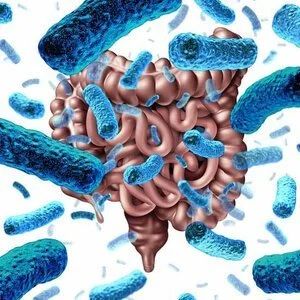Why Do I Still Have Digestive Symptoms When My Tests are Negative?
I Still Have Gut Symptoms but My Tests are Negative!
If you have suffered or suffer from gut symptoms like bloating, indigestion, reflux, diarrhoea, constipation, abdominal pain or cramping, then you know what misery that can cause.
I have suffered the above, and have known patients quit their jobs due to these troubling symptoms.
Most patients would have seen their GP, had blood tests and probably prescribed tablets for irritable bowel syndrome (IBS), or acid suppressors for reflux.
While the diagnosis and treatment are sometimes correct, in some cases it is not, and you are referred to a specialist for answers.
If you do get an endoscopy or sigmoidoscopy and nothing is found, you probably have no more options and are left to suffer.
So how is it that despite all these tests you could still have gut symptoms?
In other words, what is the hidden cause if you like?
To answer this, we will need to understand a bit more about the digestive system.
What is the Digestive System and it’s functions?
The digestive system comprises a group of hollow and solid organs whose principal function is breaking down the food we eat to produce energy.
Organs that make up the digestive system include: The mouth, oesophagus (gullet), stomach, first, second and third parts of the small intestine (duodenum, jejunum, and ileum), gallbladder, pancreas, large intestine (colon) and anus (rectum)
The food we eat is broken down by various enzymes present in different organs of the digestive system that break down food into an absorbable form.
There is also a vast community of bacteria, fungi, and protozoa present in the gastrointestinal tract which play a vital role in digestion among other things.
This community of microbes is known as the microbiome, is estimated to be about 100 trillion.
Find out how to tackle your digestive symptoms
Book a gut health consultation with Dr. Leke, one of the UK’s leading gut health experts. Or if you have questions before booking, you can schedule a free 30-minute call first.
The aim of having an endoscopy or a sigmoidoscopy (camera tests) for that matter, is to have a detailed look at the structure of the gut.
These are extremely useful tests that are important for diagnosing conditions like inflammatory bowel diseases, diverticulitis (inflammation of the bowel) and cancers.
An endoscopy of sigmoidoscopy does not give you any information about the microbiome.
You might ask, well what about the stool test that was requested?
That's a good question, however, the standard stool test requested by your GP is not comprehensive.
Secondly, it does not provide any information on the state of the microbiome.
So, one of the hidden causes of your symptoms could lie in the condition of your microbiome.
This is why eating for your gut bacteria is the best strategy for long term health.
Please feel free to contact me at www.guthealthmedic.com for any questions you may have.
Dr. Leke Asong
Gut Health Medic
About the Author
Dr. Leke is an NHS GP and Functional Medicine Doctor with deep expertise in gut health. His approach emphasises the relationship between the gut and overall wellness.
More from my gut health blog…











